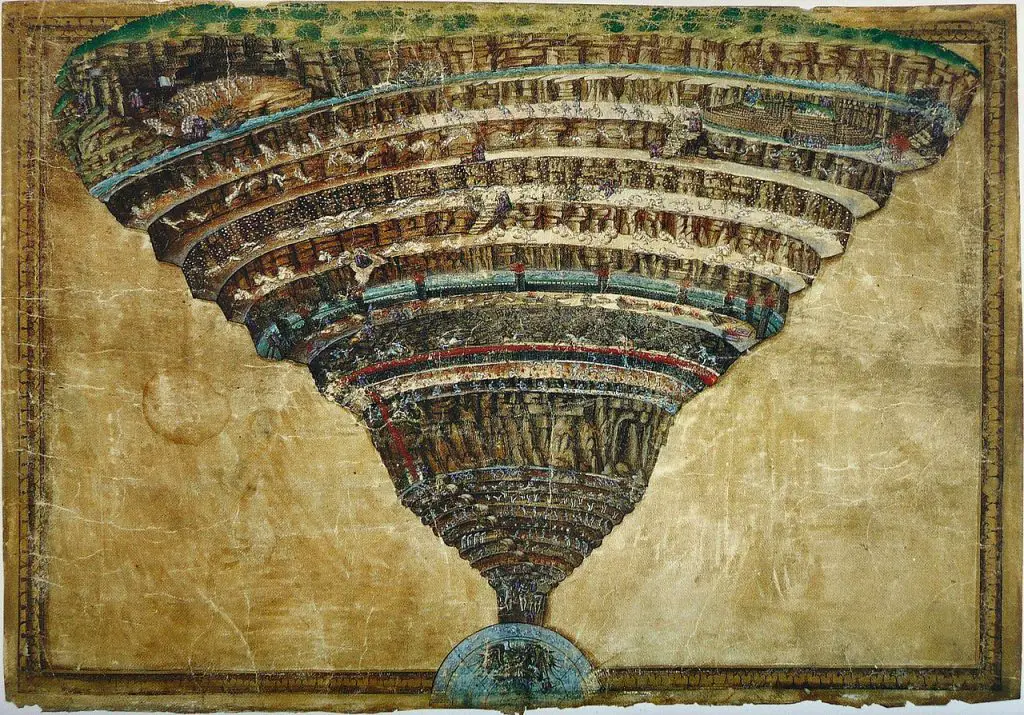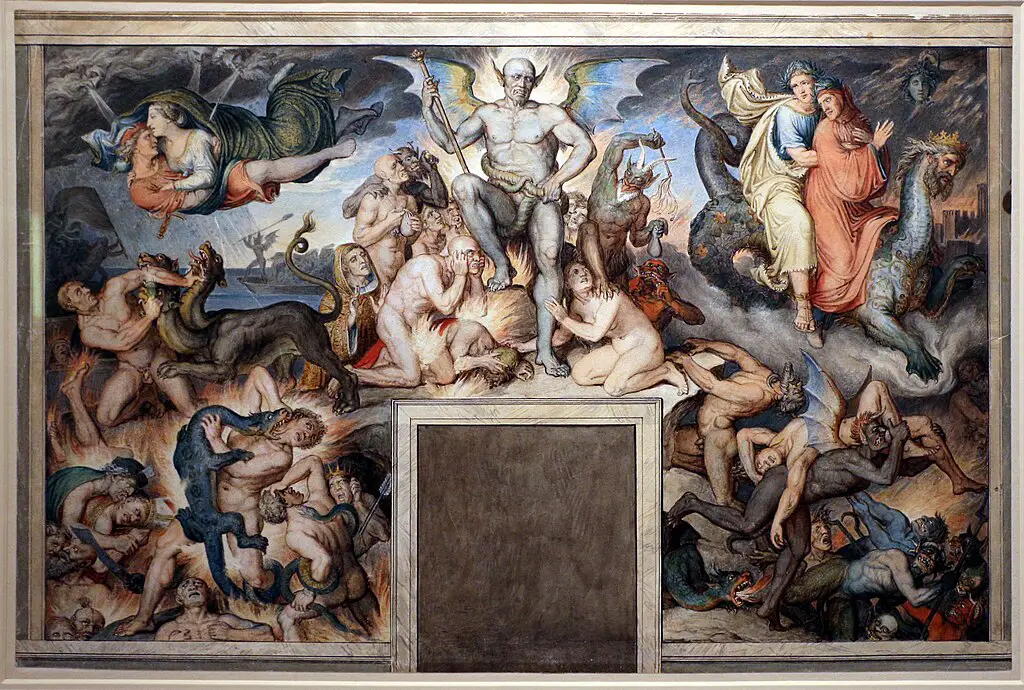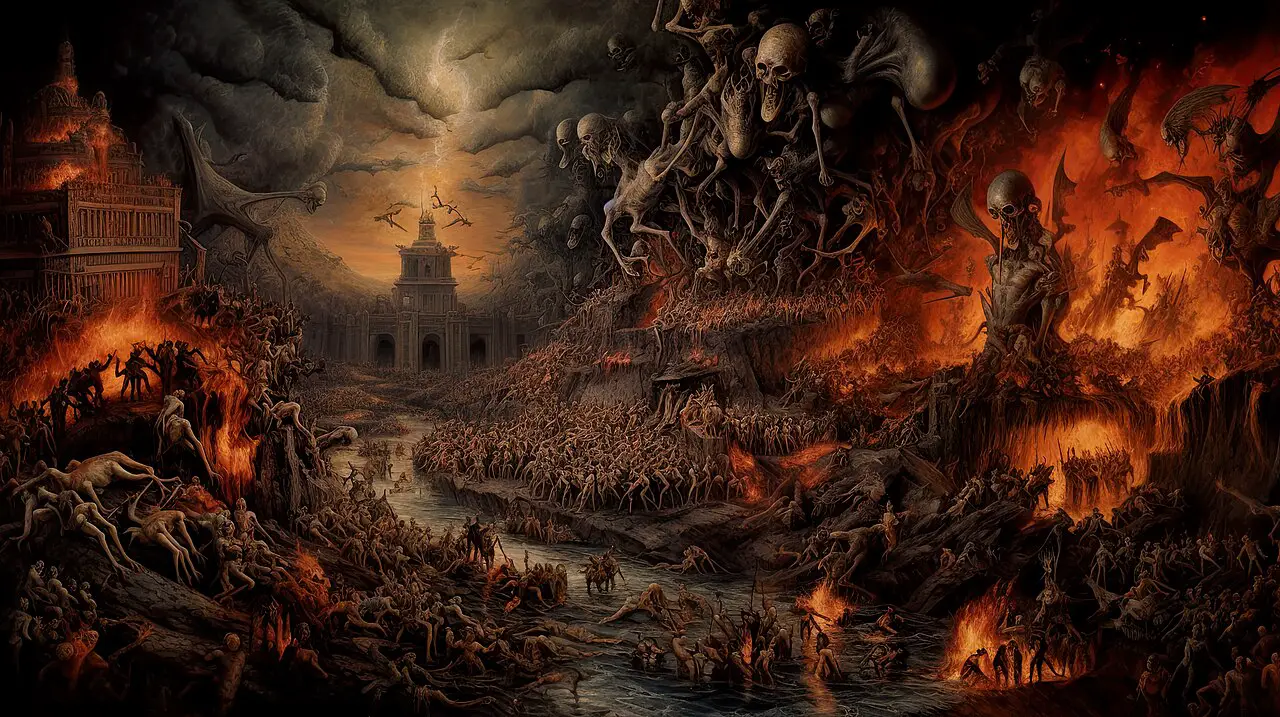 he concept of Hell has fascinated and intrigued humanity for centuries. Described as a realm of eternal punishment and torment, it remains an enigmatic and controversial topic. While the existence of Hell as a physical place is a matter of belief and interpretation, this article delves into the idea of exploring the nearest location to Hell, not in a literal sense, but in terms of understanding the concept and its cultural significance.
he concept of Hell has fascinated and intrigued humanity for centuries. Described as a realm of eternal punishment and torment, it remains an enigmatic and controversial topic. While the existence of Hell as a physical place is a matter of belief and interpretation, this article delves into the idea of exploring the nearest location to Hell, not in a literal sense, but in terms of understanding the concept and its cultural significance.
Unveiling the Mysteries of Hell
Hell, often depicted as a place of fiery torment and suffering, has deep roots in religious and mythological traditions. Across various belief systems, it is described as a realm where the wicked are condemned to eternal punishment. However, the interpretation and visual representation of Hell varies across cultures and religions.

In Christianity, Hell is often portrayed as a domain ruled by Satan, with different levels or circles of punishment. Dante’s Inferno, an influential literary work, provides a vivid depiction of the nine circles of Hell. In contrast, other religions and mythologies have their own interpretations, such as Hades in Greek mythology or Naraka in Hinduism and Buddhism.
Exploring Hell as a Metaphorical Concept

While Hell has traditionally been understood as a physical place, many scholars and theologians argue that it is better interpreted as a metaphorical concept. In this sense, Hell represents the consequences of immoral actions and the spiritual separation from a higher power. It serves as a moral reminder and a deterrent against unethical behavior.
Exploring Hell as a metaphorical concept allows for a deeper understanding of its psychological and philosophical implications. It becomes a symbol of the consequences of one’s actions, highlighting the importance of personal responsibility and ethical decision-making. This interpretation invites individuals to reflect on their choices and strive for personal growth and moral integrity.
Cultural Depictions and Symbolism
The concept of Hell has permeated various aspects of human culture, including art, literature, and popular culture. Artists throughout history have depicted Hell in vivid and haunting imagery, capturing the imagination of audiences. From Hieronymus Bosch’s grotesque and surreal depictions to Gustave Doré’s intricate illustrations, these works provide glimpses into the collective imagination’s interpretation of Hell.
In literature, Hell often serves as a powerful backdrop for exploring human nature, morality, and redemption. Works like Milton’s Paradise Lost and Marlowe’s Doctor Faustus offer profound insights into the human condition through their depictions of Hell and its inhabitants. In modern popular culture, Hell continues to be a captivating theme, with films, television shows, and video games exploring its dark allure.
Beyond Hell: Reflection and Redemption
While the exploration of Hell can be intriguing, it is equally important to consider the broader themes of reflection and redemption associated with it. The concept of Hell serves as a reminder of the consequences of our actions and the potential for personal growth and transformation. It encourages individuals to reflect on their choices, seek forgiveness, and strive for moral and spiritual development.
In religious contexts, Hell is often accompanied by the concept of salvation and the possibility of redemption. It offers hope for individuals to change their ways, seek forgiveness, and find spiritual reconciliation. Beyond the fear and dread associated with Hell, there is room for personal growth and the pursuit of a virtuous life.
Journeying to the Abyss of Hell, in a metaphorical sense, allows us to delve into the depths of human imagination, morality, and cultural symbolism. While the literal existence of Hell remains a matter of faith and interpretation, exploring its concept provides insights into our collective understanding of morality, consequences, and personal transformation. Whether as a physical place or a metaphorical construct, the exploration of Hell encourages us to reflect on our choices, seek redemption, and strive for a more compassionate and ethical existence.
Avid Writer with invaluable knowledge of Humanity!
Upcoming historian with over 30 million views online.
“You make your own life.”





